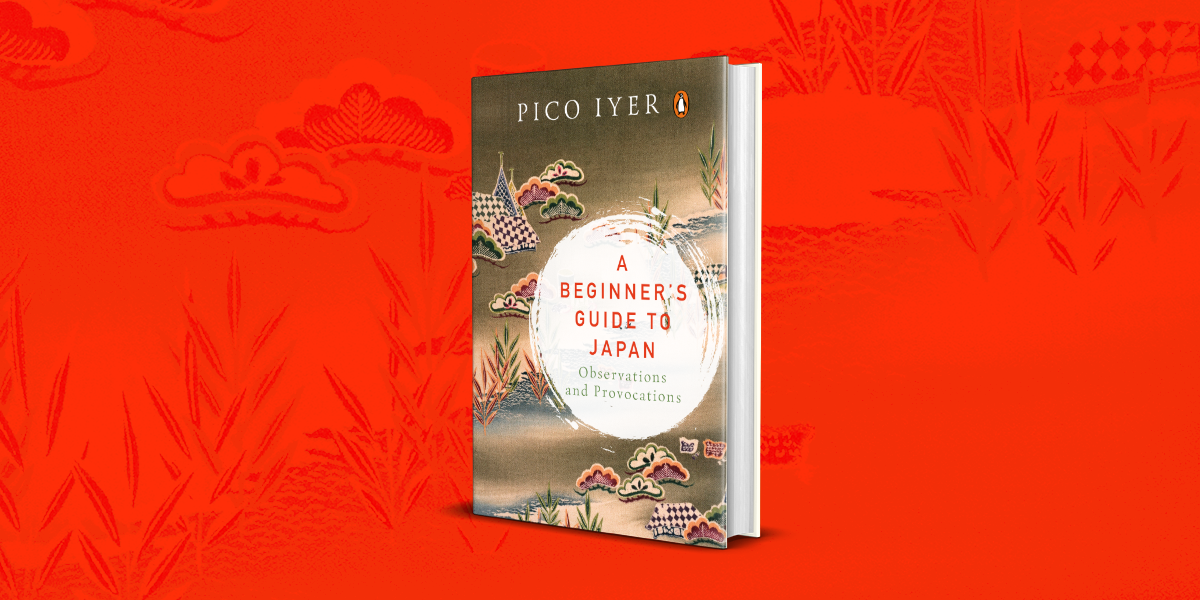
Pico Iyer calls his new book , A Beginner’s Guide to Japan , a “beginner’s guide” not only because it’s aimed at beginners, but mostly because it’s written by one. Being in Japan has taught him to say, “I wonder,” more often than “I think.” The first rule for any foreigner in Japan is not to talk of this- or- that; the second is never to take anything too seriously.
Here we try to understand some reasons why this land of streamlined surfaces and the home of collected inwardness has made the author live in the country for thirty-two years; inspite living all of it on a tourist-visa.
Strangers routinely sleep with their heads on strangers’ shoulders on Japanese trains, and the leaned- upon agree not to flinch. A sign of trust—of community, perhaps……
~
Japan is the land of the bento box. Portions are small, and divisions absolute. Everything is in its place— right down to the condiments— and no sauce slops over the side, as it might in a tiffin box in India.
~
You can imagine yourself to be anyone— anywhere— for a moment, so long as you accept that you can’t be what or where you choose most of the time.
~
Identities are fluid, flexible in Japan, perhaps because reality is not. And in a culture based upon impermanence, you can give yourself up to any disguise, because it doesn’t last.
~
The smiles we see in Japan are, less an attempt to get something from us than an attempt to give something.
~
The Japanese aesthetic is less about accumulation than subtraction, so that whatever remains is everything.
~
In Japan, a great conversationalist is one who listens.
~
It is the crowds that make a festival, much more than the spectacle itself. It’s their unembarrassed gasps, the high- pitched cries of delight, the collective roar— the whole sense of being part of a large and happy unit— that gives a public celebration its warmth.
~
Japan’s streets are less threatening to women than those of almost any other country…..
~
Japan is a society based more on trust than on faith and lack of transparency can be less the enemy of trust than its perfect safeguard.
~
Japan’s toilets are famous for their ability to measure your urine sugar, to offer air-conditioning, to produce music to cover up a tinkle, even to self- deodorize.
~
The holiest shrine in the land, at Ise, is completely rebuilt every twenty years, and all the twenty- five hundred ceremonial objects and instruments within the shrine are carefully re- created.
A Beginner’s Guide to Japan is a playful and profound guidebook full of surprising, brief and incisive glimpses into Japanese culture.









